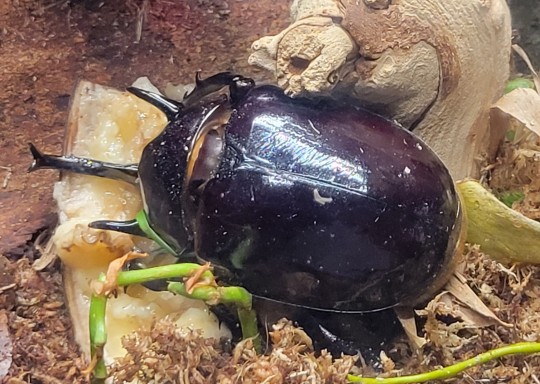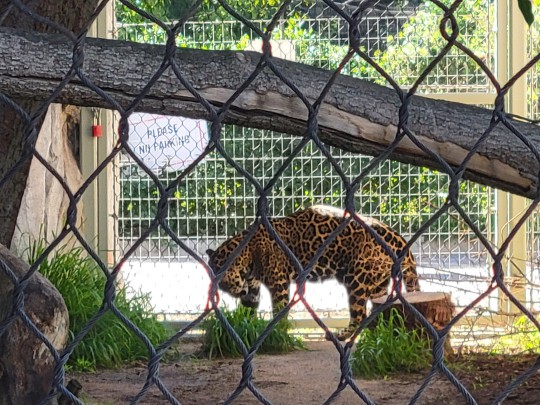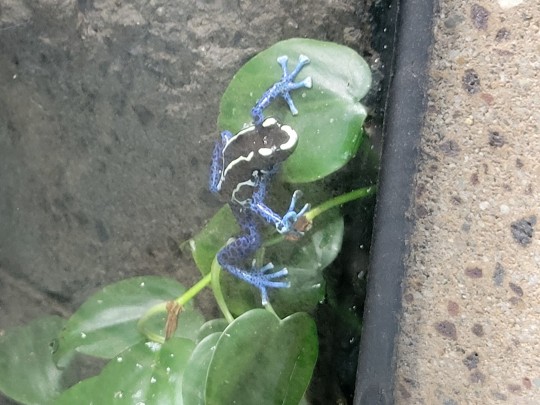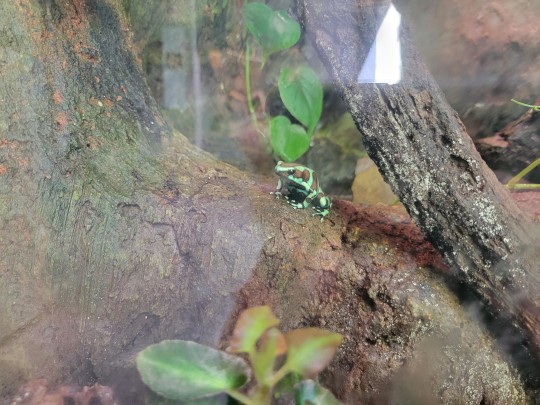#posting from my phone bc google photos is not cooperating
Text
zoo pics!!!


giant flower beetle & rhinoceros beetle


meerkat & jaguar (her name is nindiri and she is STUNNING close up but she wasn't pacing near the front today)


capybaras & galapagos tortoises


mossy frog & dyeing poison frog


kaiser newt & green and black poison frog
#bell.txt#bugs#frogs#will throw snakes and more stuff in the rbs#posting from my phone bc google photos is not cooperating
24 notes
·
View notes
Text
anyways
get a vpn i use mullvad it’s p cheap and just gives you an account number set it to switzerland theyve got nice solid privacy laws and arent part of the main surveillance agreements between the us and its allies (5 eyes, 9 eyes, or 14 eyes) opt out of everything the websites you visit give you the option to opt out of (bc of eu and swiss privacy laws p much every website will give you that option and breakdown clearly what info they wont let you opt out of and what theyll do with it) and install it on both your phone and computer
follow these instructions to keep google from harvesting and keeping your data. altho honestly they probably still keep that data so just avoid google when possible. on that note the google search alternative i use is startpage it uses google results but anonymizes your search bc lets be honest duck duck go kind of sucks and if a service is subpar youll probably just revert to the better one so. startpage.
use firefox google chrome is the devil why are you using google chrome. it’s terrible and you can easily import everything to firefox. clear your cookies frequently.
get rid of your alexa or google home or whatever you do not need it and dont buy one if you dont already have one. dont buy a doorbell cam and if you really need or want one definitely do not buy a Ring doorbell cam. dont buy anything you can avoid thats attached to the Internet Of Things. invite tech companies into your home as little as you possibly can
install ublock origin and privacy badger theyll block a lot of ads and trackers. also install the google analytics opt out extension which will prevent some of your activity from being reported back to google (it doesnt opt out of all google analytics functions tho)
install facebook container, twitter container, and amazon container. this will help prevent them from following you around the web at least a little. also stop visiting those sites as much as you can and uninstall their apps. this includes instagram which is rife with privacy issues. disable or uninstall as many google apps as you can and your phone will allow.
use signal for messaging (available on desktop and mobile and can be used for video, voice, and text/photo chat) and protonmail (choose the .ch domain name) for email. bc i am.....broke and dont really want to have another subscription so i can have two protonmail aliases i use a tutanota account (based in germany which is part of the 9 eyes) for random stuff i want to sign up for and protonmail for personal email.
stop using google news and flipboard they store everything you read and tailor your feed. i use inoreader for now which is an rss feed so you just subscribe to the news sources you trust but i am also searching for a better rss feed app with a good ui to use instead bc inoreader still collects user data, but they dont tailor your content at least.
theres not really a good alternative i know of for youtube but the best thing you can do there is remain aware of past and the latest right-wing dog-whistles so if you accidentally stumble on a shitty covertly alt-right video bc youtube is constantly pushing them, you can avoid that.
do not submit your dna to ancestry websites and vocally encourage your family members not to as much as you can.
im not a Tech person at all so all this is just the best i can do as a random person who doesnt want companies esp companies that notoriously cooperate with the us government given what we’re headed towards to have every tiny piece of my info.
read this article by a Tech Guy telling you all the information google and facebook have on you and some tips he has on how to delete or prevent it i might have forgotten which was the first thing to really properly scare the shit out of me about tech companies a couple years back. also this series about a journalist’s experience trying to avoid the big five tech companies for a week each and how mindblowingly difficult that was. in terms of documentaries lately ive watched the social dilemma (which was infuriating but had lots of interviews with Tech Guys who were formerly high up in many tech companies completely avoiding responsibility for their actions but also telling you all the shit they do) and the great hack about cambridge analytica. also thank you to user @crowleyraejepsen for being your friendly neighborhood librarian helping me do my bare minimum to protect my privacy
i know if anyone reads this massive rambling post theres gonna be a million people in my inbox with “well what if i NEED to do this or CANT avoid them for THIS REASON” and my answer is: then do it! why do you care about or want my approval! i know there are plenty of scenarios where these services are basically essential or unavoidable so just use them when you have to and avoid them when you dont. or do nothing! but be aware of the choice youre making at least
4K notes
·
View notes
Text
The Beauty Industry Profits on your Unhappiness
In 4,000 BC, historians traced the first ever beauty product - kohl eyeliner that the Egyptians used to create dramatic eye looks. Social media emerged in the 1970s when the internet really transpired in this time period. These days, the beauty industry and social media have seen immense growth. The beauty industry is appraised to be worth above 15 billion Euros, and social media is expected double in growth in the next few years - with Snapchat and Instagram being in the lead for most users.
The beauty industry has always had problems - especially when it came to women's' expectations. Feminist movements have always admonished the use of makeup - as most women felt rigid feminine expectations were being pushed on them. In recent years, makeup was seen in a different light - as a way for women to express their creative side, to feel good about themselves, and that despite wearing makeup - they should always be respected not as women but as people.
However, makeup and the use of social media is being viewed in a critical lens once again.
Social media is a double-edged sword in the 21st century; what was seen as a way to open doors, connect with like-minded individuals, research topics, and have educational discussions over an online platform. However, the curse that lies in social media is how accessible we have become - with a lack of privacy and a fast-paced environment, many users are feeling fatigued and dissatisfied with their social media use and accounts. Social media in its infancy celebrated creativity and open-ended dialogue between users from all over the world, but now with marketing changing along with our online communications - social media has quickly turned into a virtual department store where products, ideologies, and misinformation are at the ready.
The beauty industry and social media are now seemingly joined at the hip with more companies using influencer marketing strategy. Here is where the article gets ugly.
I'm not going to pretend that beauty ideal, marketing, and social media were not an issue before - I'm sure women in my generation back then felt the pressures as much as the women of this generation do - but back then, the beauty industry was not in our faces 24/7. I myself as a young girl barely read any magazine articles concerning beauty, and I wasn't interested in fashion, or any notion of performative femininity. And my friend would tend to agree, back then we were free to be kids. I didn't even start wearing eyeliner until I was seventeen years old, and even if I did wear eyeliner it was because my mother forced me to because it was a holiday. Even if you Google teenage celebs in the 90s to early 2000s and compare to teenage celebs in 2014 - 2018 - you can definitely see a difference in how the beauty industry and the beauty standards have changed. Young girls today are feeling more and more pressure to look a certain way that young girls in my generation ever did.
And the consequences of these societal expectations are causing teens to not only become prematurely depressed, but body dysmorphia, eating disorders, and self-objectification is on the rise.
Tweens, teenagers and young adults who are interested in makeup all follow at least one social media mogul - usually its' Kylie Jenner, Jaclyn Hill, Tati Westbrook, or any other celebrity such as Ariana Grande. The beauty of social media was that it allowed users to have complete control over their image and use promotion as their means to get funding. Each day, as I scroll on my phone, I often see women with long, incredibly toned legs, plump breasts, pouty lips, chiselled cheekbones, flat tummies and perfectly, rounded buttocks. The comments on each one of their photo and captions is fans wishing to look like them, often chastising their own appearance whilst praising their looks and ask for dieting tips, look tips, fashion tips.
As influencers share their dieting tips to look the way they do, this is seen as an honest way to connect with their audience and provide insight.
Unfortunately, this is not what happens.
The problem with the beauty industry is that it heavily relies on false representations and unrealistic standards. An Instagram model or even a well-known celebrity will post on their social media the secret to their physique and over-all look - and usually that "secret" comes in the form of detox teas that are filled with laxatives and dangerous ingredients, diet pills that have not been properly researched, or whatever snake oil they needed to push on impressionable young women. In reality, this is farther from the truth. Kylie Jenner was one of the celebrities to promote a laxative-based tea that can induce gastrointestinal problems later in life, but it is well known that Kylie Jenner, American socialite and TV personality, has been very open about retouching her photos, undergoing cosmetic surgery, and even has a personal gym and trainer within her residence. The same can be said for Kendall Jenner, sister of Kylie Jenner, who was recently criticized for becoming a spokesperson for ProActive, claiming it was the sole cure to her acne. Mostly because, a few short months earlier in 2018, Kylie Jenners' dermatologist explained that the cure for Kendall Jenner's acne-problem was a mix of well-formulated skincare products that were not ProActive and a laser treatment.
Los-Angeles based makeup artist Jordan Liberty stated on his Instagram stories that a models' job was not to look attractive, but it was to sell products by using her facial muscles and body. A models' job is to always promote merchandise - and recently the beauty industry has been taking models to promote unrealistic beauty standards and the quick fixes and products to attain that level of beauty.
The problem with the products that most models becomes a spokesperson for is that none of these products promotes a healthy lifestyle. As I have mentioned, many diet-based teas often have laxative ingredients that will damage the intestinal system and can cause serious dehydration to a young girls' body. Not to mention, that by utilizing hashtags such as 'thinspo' and 'body goals', including the high amounts of re-touching and intricate makeup placements to allow the model to look thinner, healthy and well-toned, often leads young women to negative thought patterns, depression and body dissatisfaction.
In 2016, Fardouly and Vartanian researched the high-rise of social media and the correlation of body image concerns, and they found that users with more appearance exposure suffer a lot more from weight dissatisfaction, drive for thinness, and thin-idealisation. They concluded that social media does indeed impact teenagers appearance concerns. Dr Helen Sharpe was quoted by The Guardian and she stated that most teenage girls resort to unhealthy weight loss practices, such as skipping meals, smoking, and lower levels of physical activities. Social media such as snapchat and Instagram are even damaging to young women due to filters and facial-reorganising that occurs on both apps - thus giving an overall distortion of ones' appearance. Time Magazine even reported on Snapchat causing self-esteem issues, dubbed as 'snapchat dysmorphia', plastic surgeons are writing that there is a surge in clients wanting to look like their filters, with bigger eyes, thinner noses, and fuller lips. They describe such a trend alarming since those filters are meant to be an unattainable facial structure and the lines between fantasy and reality are slowly blurring. Plastic surgeons are also arguing that these apps are making people lose touch with reality, and are expecting to look perfectly prim in real life.
Accounts such as @celeblife have taken upon themselves to remove editing, plastic surgery and enhancements to show users before and after shots of the models in question. These accounts are not there to ridicule the celebs or poke fun at their bodily enhancement, but really it is to remind users that at the end of the day social media is just smoke and mirrors. None of it is real. The images that we see, the videos that we observe - they're all scripted, edited, filtered, and processed.
The Beauty Industry will let people - especially impressionable young women - fight to attain those unrealistic beauty standards - but all the industry is doing is leaving a sea of depressed young women in its' wake. All the industry does is prey on women's' insecurities and fear by pushing and pushing products to make them 'selfie ready' or 'life-ready'. I myself as a woman have often skipped going to social events because I didn't want to put on makeup, or wouldn't even call my friend using video because I wasn't wearing makeup.
Accounts like @celebself and beauty influencers like Samantha Ravandahl, a Canadian Youtuber, talking about what it truly means to sell product - citing that brands sent over scripts instructing her to claim that no other product has helped her as much as this one - Ravandahl stated that she could not cooperate with the brand because at the end, she did not want to lie to her audience. Ravandahl recently talked about no longer receiving product launches from brands and wants to return to her authentic, educational roots than constantly act as an advertiser. These accounts and outspoken, honest influencers may remind us not to be so hard on ourselves, and that at the end of the day, we're admiring a tiny, unattainable fraction of reality.
So, if you're a young girl reading this and you're worried about the way you look - I can't tell you “don't be” as we both know these things are harder to shake off, but I can only remind you that everything on social media is glamorized and even if you do not look like the models on Instagram - you're still beautiful, worthy of respect, intelligent and you should give yourself more time and credit.
54 notes
·
View notes